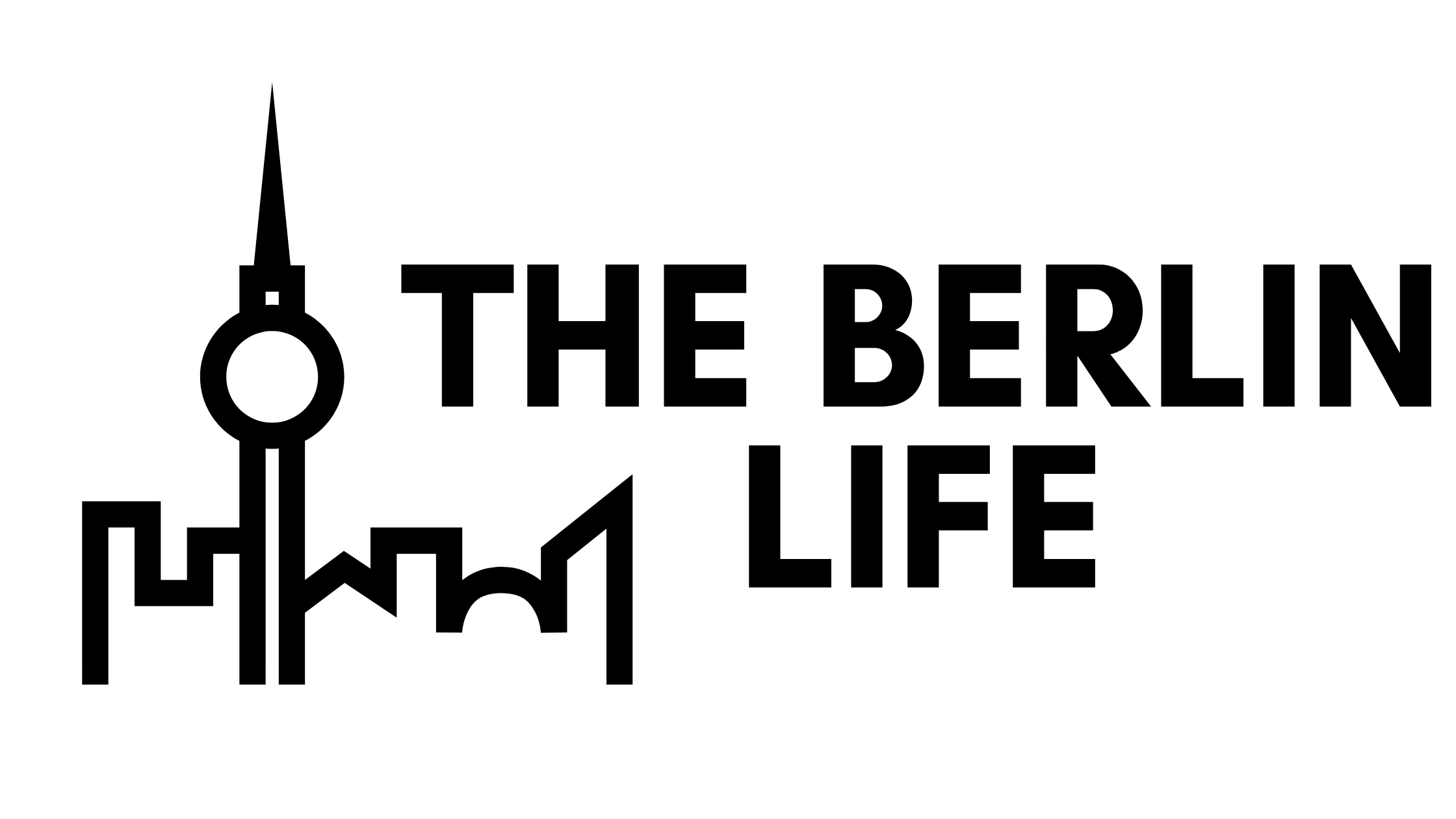FIND A JOB IN GERMANY WITH OUR JOB SEARCH CHECKLIST
We know that being a foreigner looking for work in Germany is really hard (read this post about the reality of seeking employment in Berlin). So we’re here to take that pain away from you and make your job search experience a little smoother.
OUR JOB SEARCH CHECKLIST WILL HELP YOU FIND WORK IN GERMANY
We’ve long been doling out advice on working in Germany and we have plenty of comprehensive and detailed Berlin Life guides. We’re now going to bring all of that together with this checklist you can bookmark for future reference. It will feature all the things you need to consider when looking for a job in Germany, such as having a CV fit for the German job market, polishing your LinkedIn profile, having professional references at the ready, and so much more.
Here are the things you’ll need when searching for work in Deutschland
1) An updated CV
If you’re going to apply for a job in Germany, you need to have an updated CV that’s suitable for the German job market. This includes different things like making sure your CV isn’t more than 2 pages and prominently displaying certain information that German recruiters want to see right away like language, skills, and education.
What works elsewhere, may not work in Germany and you’ll need to modify your CV as needed to get invitations to a job interview. Lucky for you, we have tons of helpful resources to get you started:
⭐ Read our detailed guides – How To Write A German CV That Will Get You Interviews, Avoid Making These German CV Mistakes, and Why German CV Photos Are Not Necessary.
⭐ If you want help from a professional career coach, book a CV coaching session with me. I’ll help you create a CV fit for the German job market and ensure you stand out against other candidates. You’ll receive detailed feedback about how to improve your current CV, as well as a 50 minute call with me to review it together and sort out any other questions you might have.
⭐ A more budget-friendly option is to book a CV quick review, where you get detailed feedback but without the call.
2) Different CV versions (if applicable)
If you plan on applying for different roles, be sure to have a different version of your CV for each one. For example, if you’re a product manager and UX designer, you’d have one product manager CV and one UX designer CV. Some elements of the CV might be similar, but other elements will vary depending on the range of your profiles.
3) Ability to customize your CV quickly and easily
It’s essential to know which parts of your CV to customize for job applications. In general, these areas of your CV can be customized:
⭐ Certain keywords or phrases in your “about me” statement (sometimes also called a “professional profile”).
⭐ Job titles (so long as they do not stray too far off your original job title).
⭐ Responsibilities or accomplishments for each of your jobs listed under your work experience.
⭐ Technical skills and other core competencies you highlight.
Keep in mind that you want to use similar wording that the company has in the job description and not a word-for-word regurgitation. Otherwise, it won’t sound natural and the keyword stuffing will be really obvious to anyone looking at your CV.
Last but not least, any changes you make should only take a few minutes of your time by making a few small tweaks here and there.
4) A cover letter template
In addition to having a CV that’s up to German standards, you need to know how to write a cover letter that works in Germany. Generic cover letters won’t suffice and you’ll need to develop a custom cover letter for each job application you submit. To be able to create a new cover letter on repeat, it’s wise to have a foundational cover letter template to work from.
We have guides to assist you with this of course, so read How To Write A German Cover Letter – A Step By Step Guide and Don’t Make These German Cover Letter Mistakes. They are packed full of super helpful tips to walk you through how to structure a cover letter.
Additionally, I also offer cover letter coaching and quick reviews if you want my (super awesome) professional help.
5) A list of professional references
While I still need to write a more in-depth Berlin Life guide about professional references in Germany – as they are very different from how I used to collect references in Canada, it’s always a good idea to have a list of professional references at the ready when you’re looking for a job in Germany.
I’ve lived in Germany for more than a decade and to date, I haven’t been asked to provide references once. However, friends and coaching clients of mine report having to provide them to potential employers now and again. At a minimum, have at least three professional references on file, and be sure to have at least their name, phone number, and email.
If you’ve already been working for a German company, then make sure you always request a reference letter before leaving the company whether you quit or were terminated. That way, you can keep it on file in case you ever need it in the future. Read our guide on notice periods in Germany for more details.
Another thing you could do is have both past and present colleagues write you a recommendation on LinkedIn. This way potential employers can easily see all the wonderful things people are saying about you without even asking.
Be sure to follow The Berlin Life on Linkedin too!
6) Private or “clean” social media profiles
There aren’t too many people who aren’t on social media these days. Whether Instagram, TikTok, Facebook, Twitter, or something else, many of us have some kind of online presence. What a lot of people often don’t think about is how their social media presence could potentially impact their ability to find a job. Many don’t realize that it’s common for prospective employers to Google you and see what they can find out.
The best case scenario is having a social media presence that’s career-relevant. For example, a recruiter may attempt to cultivate a following on LinkedIn by sharing tips and tricks about how to find work. This is a good thing, as it shows an employer how passionate you are about your career. While a career-relevant social media presence is lovely, it’s usually not required for work. For example, if you have an Instagram account where you post pictures of food you cook, your employer will only learn that you’re a whiz in the kitchen. 👨🍳
What’s not ideal is a social media presence where you share things that could be considered inappropriate, offensive, or controversial. Obviously, everyone has the right to share what they want without censorship, within reason and in accordance with laws. But at the same time, you need to think about how the content you create or share can be perceived by others. You even need to be careful about who you follow, as a simple follow can seem like an endorsement of that person. Depending on what they find, an employer could take one look at your social media accounts and immediately put your job application in the discard pile.
Whether or not this is right (we’re not taking a stance on that here), it’s a reality you have to deal with when looking for work in Germany. So while on the job hunt, we suggest being cautious about what you post, who you follow, the comments you leave, etc. Other workarounds could include making your accounts private or not using your real name.
7) Social media callouts
If you’re active on social media platforms, you can also leverage them to find a job in Germany. Be it LinkedIn, Twitter, or even Facebook groups, you can advise your network that you’re looking for work. People love helping each other out and will not only share your post but will be likely to connect you with others too. Even if they don’t do the latter, you never know who may see your post.
Years ago when I found myself out of work in Berlin, I shared on Twitter that I’d been laid off and was looking for a new job. My tweet was shared many times and I landed two job interviews as a result – both of which led to job offers!
We know that you might not have a large social media following or be in a position to openly admit you’re looking for work, but there are ways to get around that. You can post anonymously or have a friend share something on your behalf.
And even if you post once, don’t be afraid to post more than once. Bottomline, social media callouts are a great way to expand your professional network and up your chances of finding a job in Germany.
8) A public GitHub profile
Anyone working as a software engineer should have a public GitHub profile that can be viewed by potential employers. Your GitHub profile legitimizes you as a software engineer and allows you to showcase your skills and experience. What’s more, is that it gives people a chance to see how you work from a technical perspective, which communities you contribute to, what type of work you’ve been doing, and more.
It’s even better if you’re contributing to open-source projects, as it shows a dedication to your profession, a curiosity to learn, and a desire to improve the world in which you work. Contributing code, reviewing code, updating read-me files, etc. go a long way toward showing companies why they should hire you.
9) An Idea About Where You Want to Live and Work
When you’re searching for work in Germany, it’s a good idea to know where you want to live and work. So before you start applying, think about where you want to live and research the related cost of living, as well as the average salary range for your profession.
Life is also really different in Hamburg than it is in Berlin, as well as life in Munich is quite different from life in Frankfurt. Aside from the costs you’ll need to consider, you need to find a place where you’re going to feel comfortable and happy. Some people want to live in a quiet village, others want to be close to the mountains, and some (like me), never plan to leave the country’s capital.
To check out the cost of living for Germany in general, as well as different cities, we recommend taking a look at Numbeo. For an idea of my personal monthly expenses, check out my post on the cost of living in Berlin. And to figure out how much it will cost to move to Germany, use our guide – How Much Does It Cost To Move To Germany? Use Our Calculator! Be sure not to miss our massive moving to Berlin guide either.
To explore salary ranges, check out platforms like GEHALT.de, Glassdoor, and kununu.
Learn what life is like in various German locations, we recommend finding people you like on social media, as well as exploring blogs like ours! Peruse our library of more than 50 guides to living and working in Germany, as well as check out these top English podcasts in Berlin, and top blogs in Berlin.
Once you know where you want to base yourself, you can start researching the companies you really want to work for.
Of course, if you’re able to work remotely, you have the luxury of applying to any company in Germany. Just keep in mind, the distance of potential journeys for those times you might be needed onsite.
10) A “SFW” email address
While you’re going to submit most of your job applications via portals like LinkedIn or Xing or via company websites, every so often you’re going to need to email your job applications – especially in the cases of smaller companies. If you get a positive response from a company, you’ll be emailing back and forth with them as well.
Regardless of the situation you’re going to need to have a “SFW” (safe for work) email address. If you happen to have a domain like ours, you can use something like [email protected]. But honestly, any email provider will do, like Gmail, Outlook, etc. Preferably you can get an email address with your name in it.
What you want to avoid is email addresses like “[email protected]” or “[email protected]”. Using such an email will come across as unprofessional and like you’re not taking your job search seriously. So don’t be silly and use a professional-looking email address. 🙃
11) An email signature with your contact information
Another good thing to do is to create an email signature containing your pertinent contact information. Include your name, email, and links to any websites you might have, GitHub profile, LinkedIn profile, etc.
This gives potential employers a quick and easy reminder about how they can contact you. I’ve personally had most of my offers given over the phone and have even received an SMS from my soon-to-be bosses asking me to call them for an offer discussion.
Here’s a template email signature that you can copy and post to your preferred email client:
John Doe Email: [email protected] Phone: + 49 157 8596 3256 LinkedIn: https://www.linkedin.com/in/johndoemanager/
What do you think about our job search checklist? Is it helpful? Do you have any other tips? Drop a comment below.
RELATED CONTENT
Avoiding Embarrassing German Interview Mistakes: Dos and Don’ts
Discover the most common German interview mistakes and learn the dos and don’ts to help you avoid embarrassing slip-ups.
How To Write A German CV That Will Get You Interviews
Get the lowdown on how to write a German CV. Know what to include and to leave out, as well as other success tips.
A Roundup Of Professional Career Coaches In Germany
Unsure how to navigate the German job market? Seeking to change careers or ask for a promotion? These career coaches in Germany can help.

Cheryl Howard, Founder @ The Berlin Life
Hi, I’m Cheryl. My mission is to help you move to Berlin and find work.
A Canadian in Berlin for 10+ years, I have the unique experience of moving to Berlin – not once, but twice. During my time in Berlin, I’ve had five different visas and worked as both a freelancer and a permanent employee for numerous Berlin companies. I even managed to find a new job during the pandemic and again in 2023, during Germany’s recession and massive layoffs in tech.
My day job has involved work as a hiring manager, overseeing the recruitment of countless people, as well as a team coach helping teams and individuals work better and find happiness in their careers. Through my side projects, I’ve also shared my personal experiences by publishing a series of helpful blog posts, creating a thriving community of job seekers, and hosting events to help people find work in Berlin. In 2021, I decided to put my coaching and recruiting talents to use by creating The Berlin Life, bringing my existing content and community together in one spot.
The combination of my personal and professional experience means I know exactly what it takes to move to Berlin and find work.






Hallo, ich möchte in Berlin als Krankenfachfrau arbeiten.
Ich lebe jetzt im Lebanon. Ich habe mein Studium als Krankenfachfrau abgeschlossen und ich habe schon B1 Zirtifikat.
Wie können Sie mir dazu helfen?
Hi Asma! Thanks for your message. 🙂 Germany really needs nurses so you should be able to find something here! I suggest reading through the guides on our site for more information about moving to Germany. I also suggest getting in touch with Because Berlin – they offer free advice in English and German and can give you more specific instructions about your visa situation. You can also check out this site for more info: https://monarchco.de/en/page/becoming-nurse-in-germany
We wish you lots of luck! <3
Cheryl